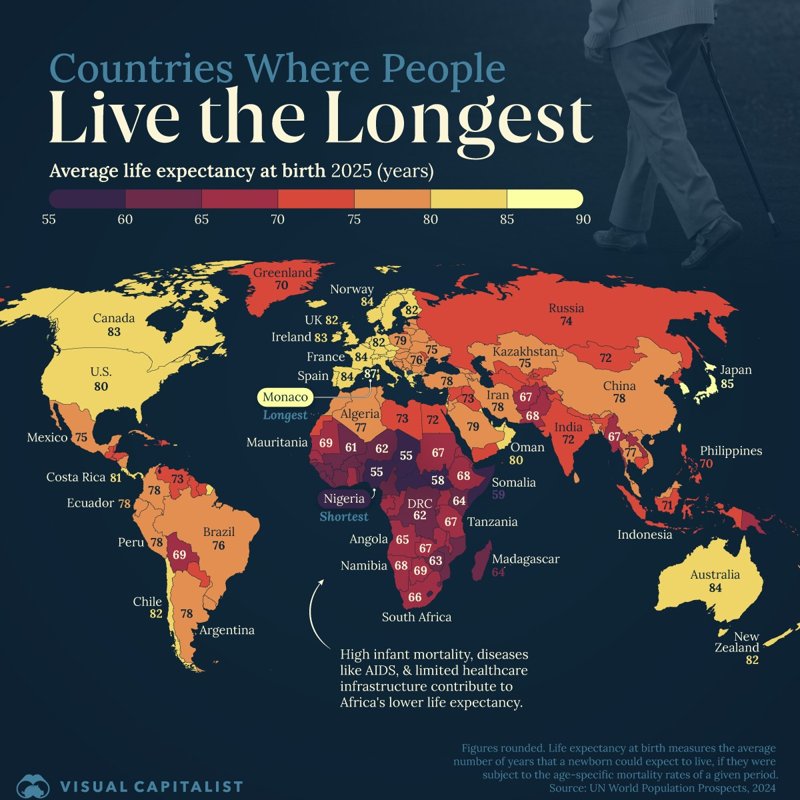Kazakhstan leads Central Asia in life expectancy for 2025
Kazakhstan has emerged as the regional leader in Central Asia for life expectancy in 2025, according to data published on the Voronoi platform, based on UN World Population Prospects, Kazinform News Agency correspondent reports.

Kazakhstan ranks 133rd globally, with a life expectancy at birth of 75 years—higher than any other country in the region.
Uzbekistan follows with 73 years, while Tajikistan and Kyrgyzstan each record 72 years. Turkmenistan trails with just 70 years, creating a five-year gap between the regional leader and the lowest-performing country. For comparison, Russia's life expectancy stands at 74 years.

The world's top ten countries for life expectancy are predominantly small nations and territories. Monaco leads with 87 years, followed by San Marino and Hong Kong (both at 86 years), and Saint Barthélemy, Andorra, French Polynesia, and Malta (ranging from 84-85 years).
However, three major nations with populations exceeding 20 million also feature in the high-performing category: Japan, South Korea, and Australia, each demonstrating life expectancies of 84 years or higher.
Western European countries show the strongest performance regionally, with life expectancy consistently exceeding 80 years. In contrast, several African nations record figures below 60 years, with Nigeria ranking last globally at just 55 years.
Experts emphasize that access to healthcare significantly impacts life expectancy, particularly for children under five and adults over 60. These age groups are most vulnerable in countries with limited healthcare resources.
Life expectancy represents the average number of years a newborn is expected to live if current age-specific mortality rates remain constant throughout their lifetime. This comprehensive demographic indicator reflects healthcare quality, living standards, and social stability.
Earlier, Kazinform News Agency reported that hypertension continues to be a major public health challenge.
